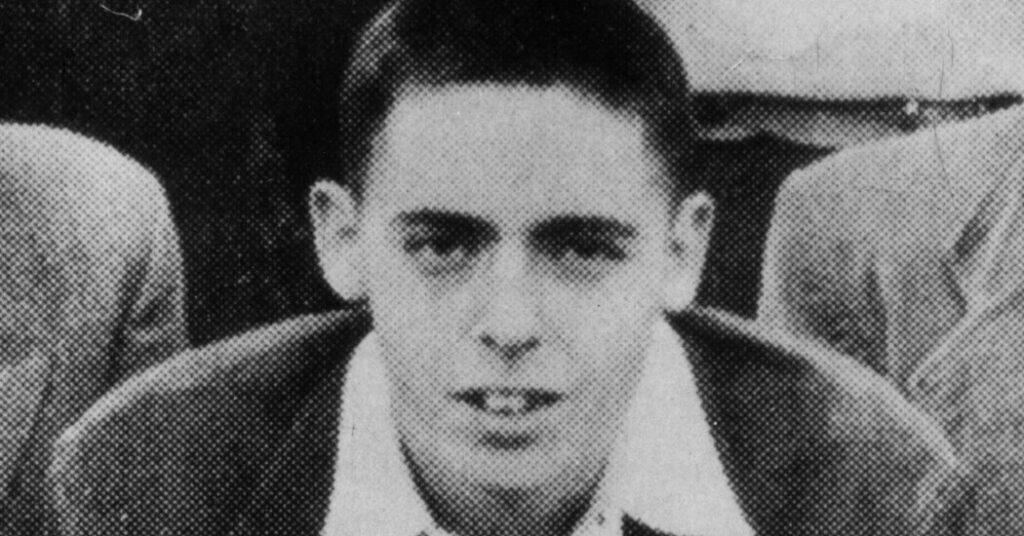The elusive novelist Thomas Pynchon will publish a new book this fall, his first in more than a decade.
The novel, “Shadow Ticket,” is due out on Oct. 7 from Penguin Press, and looks to bear many of Pynchon’s hallmark elements — paranoia, espionage, musical motifs and wacky, larger than life characters who get in over their heads.
Set in 1932 during the Great Depression, it follows a Milwaukee private eye named Hicks McTaggart, who is sent on a mission to find the runaway heir to a Wisconsin cheese empire. This routine mission goes dramatically awry when McTaggart ends up on a trans-Atlantic ocean liner and then in Hungary. In pursuit of the rogue heiress, he gets caught up in political undercurrents roiling Eastern Europe — tangling with Nazis, Soviet agents and British counterspies, as well as swing musicians, criminal motorcyclists and practitioners of the paranormal.
“Shadow Ticket” is Pynchon’s 10th book and his first new release since 2013, when he published “Bleeding Edge,” a surreal detective story about a fraud investigator in New York City in 2001, who gets in trouble when she starts digging into the finances of a billionaire executive of a computer-security company.
Pynchon cemented his reputation as a literary giant with his third novel, “Gravity’s Rainbow,” a sprawling, 760-page postmodern metaphysical masterpiece set in Europe after World War II, which was published in 1973 and won the National Book Award. In the decades since, he continued to dazzle critics and readers, with dense, comical, idiosyncratic works like “Vineland,” “Mason & Dixon” and “Against the Day.”
Yet after more than six decades as a literary celebrity, Pynchon, 87, has remained extremely private, shunning interviews and public events and rarely being photographed. (He rejects the label “reclusive,” once complaining after a news crew filmed him in Manhattan without his permission that the term is used by journalists who are irritated when people won’t talk to them.) He’s occasionally poked fun at his reputation as a misanthrope, and voiced a cameo appearance on “The Simpsons,” gruffly yelling into a mobile phone with a paper bag over his head.
His opacity has frustrated scholars and journalists but has only added to his literary allure and mystique. Many were surprised in 2022 when Pynchon sold his archive to the Huntington Library in San Marino, Calif., which included his research notes, typescripts and drafts, and publishing correspondence, but no personal letters or photographs.
“Shadow Ticket” will likely spur renewed interest and speculation about Pynchon’s private life and legacy. A description of the book in a news release announcing the publication on Wednesday sounded suspiciously like it might have been written by Pynchon himself, and Penguin confirmed it was his handiwork: “Surrounded by history he has no grasp on and can’t see his way around in or out of, the only bright side for Hicks is it’s the dawn of the Big Band Era and as it happens he’s a pretty good dancer. Whether this will be enough to allow him somehow to lindy-hop his way back again to Milwaukee and the normal world, which may no longer exist, is another question.”
